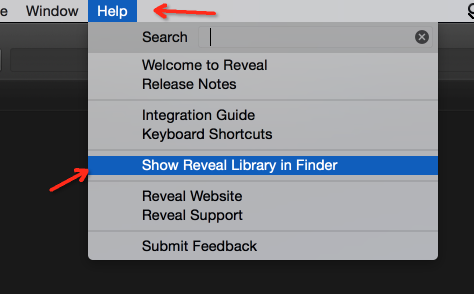iOS 中的 NSTimer

前陣子在整理公司項目的時候,發現老代碼在使用 NSTimer 時出現了內存洩露。然後整理了一些 NSTimer 的相關內容。比較簡單,各位見笑啦。
NSTimer
fire
我們先用 NSTimer 來做個簡單的計時器,每隔5秒鐘在控制台輸出 Fire 。比較想當然的做法是這樣的:
@interface DetailViewController ()
@property (nonatomic, weak) NSTimer *timer;
@end
@implementation DetailViewController
- (IBAction)fireButtonPressed:(id)sender {
_timer = [NSTimer scheduledTimerWithTimeInterval:3.0f
target:self
selector:@selector(timerFire:)
userInfo:nil
repeats:YES];
[_timer fire];
}
-(void)timerFire:(id)userinfo {
NSLog(@"Fire");
}
@end
運行之後確實在控制台每隔3秒鐘輸出一次 Fire ,然而當我們從這個界面跳轉到其他界面的時候卻發現:控制台還在源源不斷的輸出著 Fire 。看來 Timer 並沒有停止。
invalidate
既然沒有停止,那我們在 DemoViewController 的 dealloc 裡加上 invalidate 的方法:
-(void)dealloc {
[_timer invalidate];
NSLog(@"%@ dealloc", NSStringFromClass([self class]));
}
再次運行,還是沒有停止。原因是 Timer 添加到 Runloop 的時候,會被 Runloop 強引用:
Note in particular that run loops maintain strong references to their timers, so you don’t have to maintain your own strong reference to a timer after you have added it to a run loop.
然後 Timer 又會有一個對 Target 的強引用(也就是 self ):
Target is the object to which to send the message specified by aSelector when the timer fires. The timer maintains a strong reference to target until it (the timer) is invalidated.
也就是說 NSTimer 強引用了 self ,導致 self 一直不能被釋放掉,所以也就走不到 self 的 dealloc 裡。
既然如此,那我們可以再加個 invalidate 按鈕:
- (IBAction)invalidateButtonPressed:(id)sender {
[_timer invalidate];
}
嗯這樣就可以了。(在 SOF 上有人說該在 invalidate 之後執行 _timer = nil ,未能理解為什麼,如果你知道原因可以告訴我:)
在 invalidate 方法的文檔裡還有這這樣一段話:
You must send this message from the thread on which the timer was installed. If you send this message from another thread, the input source associated with the timer may not be removed from its run loop, which could prevent the thread from exiting properly.
NSTimer 在哪個線程創建就要在哪個線程停止,否則會導致資源不能被正確的釋放。看起來各種坑還不少。
dealloc
那麼問題來了:如果我就是想讓這個 NSTimer 一直輸出,直到 DemoViewController 銷毀了才停止,我該如何讓它停止呢?
-
NSTimer 被 Runloop 強引用了,如果要釋放就要調用 invalidate 方法。
-
但是我想在 DemoViewController 的 dealloc 裡調用 invalidate 方法,但是 self 被 NSTimer 強引用了。
-
所以我還是要釋放 NSTimer 先,然而不調用 invalidate 方法就不能釋放它。
-
然而你不進入到 dealloc 方法裡我又不能調用 invalidate 方法。
-
嗯…
HWWeakTimer
weakSelf
問題的關鍵就在於 self 被 NSTimer 強引用了,如果我們能打破這個強引用問題自然而然就解決了。所以一個很簡單的想法就是:weakSelf:
__weak typeof(self) weakSelf = self; _timer = [NSTimer scheduledTimerWithTimeInterval:3.0f target:weakSelf selector:@selector(timerFire:) userInfo:nil repeats:YES];
然而這並沒有什麼卵用,這裡的 __weak 和 __strong 唯一的區別就是:如果在這兩行代碼執行的期間 self 被釋放了, NSTimer 的 target 會變成 nil 。
target
既然沒辦法通過 __weak 把 self 抽離出來,我們可以造個假的 target 給 NSTimer 。這個假的 target 類似於一個中間的代理人,它做的唯一的工作就是挺身而出接下了 NSTimer 的強引用。類聲明如下:
@interface HWWeakTimerTarget : NSObject
@property (nonatomic, weak) id target;
@property (nonatomic, assign) SEL selector;
@property (nonatomic, weak) NSTimer* timer;
@end
@implementation HWWeakTimerTarget
- (void) fire:(NSTimer *)timer {
if(self.target) {
[self.target performSelector:self.selector withObject:timer.userInfo];
} else {
[self.timer invalidate];
}
}
@end
然後我們再封裝個假的 scheduledTimerWithTimeInterval 方法,但是在調用的時候已經偷梁換柱了:
+ (NSTimer *) scheduledTimerWithTimeInterval:(NSTimeInterval)interval
target:(id)aTarget
selector:(SEL)aSelector
userInfo:(id)userInfo
repeats:(BOOL)repeats {
HWWeakTimerTarget* timerTarget = [[HWWeakTimerTarget alloc] init];
timerTarget.target = aTarget;
timerTarget.selector = aSelector;
timerTarget.timer = [NSTimer scheduledTimerWithTimeInterval:interval
target:timerTarget
selector:@selector(fire:)
userInfo:userInfo
repeats:repeats];
return timerTarget.timer;
}
再次運行,問題解決。
block
如果能用 block 來調用 NSTimer 那豈不是更好了。我們可以這樣來實現:
+ (NSTimer *)scheduledTimerWithTimeInterval:(NSTimeInterval)interval
block:(HWTimerHandler)block
userInfo:(id)userInfo
repeats:(BOOL)repeats {
return [self scheduledTimerWithTimeInterval:interval
target:self
selector:@selector(_timerBlockInvoke:)
userInfo:@[[block copy], userInfo]
repeats:repeats];
}
+ (void)_timerBlockInvoke:(NSArray*)userInfo {
HWTimerHandler block = userInfo[0];
id info = userInfo[1];
// or `!block ?: block();` @sunnyxx
if (block) {
block(info);
}
}
這樣我們就可以直接在 block 裡寫相關邏輯了:
- (IBAction)fireButtonPressed:(id)sender {
_timer = [HWWeakTimer scheduledTimerWithTimeInterval:3.0f block:^(id userInfo) {
NSLog(@"%@", userInfo);
} userInfo:@"Fire" repeats:YES];
[_timer fire];
}
嗯就是這樣。
More
把上面的的代碼簡單的封裝到了 HWWeakTimer 中,歡迎試用。
參考文獻:
-
NStimer
-
How to stop/invalidate NStimer
-
Weak Reference to NSTimer Target To Prevent Retain Cycle
-
performSelector may cause a leak because its selector is unknown




